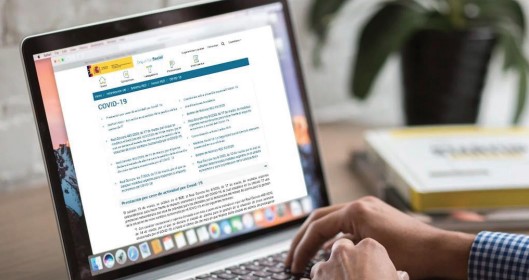ON the margins of the General debate of the UN General Assembly, UN News spoke to UN Under-Secretary General for Global Communications, Melissa Fleming, and from the World Health Organization (WHO), Dr. Sylvie Briand, Director of Pandemic and Epidemic Diseases.
In a joint interview as part of the UN's SDG Media Zone coverage, they discussed how important it is for the UN to engage with the public, and highlight international collaborative efforts to develop effective and affordable vaccines for all. Many firsts “What is difficult in the current period is, first, there is a lot of fear of the disease and a lot of anxiety from the population, as well as a lot of uncertainty”, said Dr. Briand. “It is a new disease.
Many things are first time in this pandemic. “Misinformation is not new”, said communications chief Fleming. “We’ve had misinformation as far back as you look in history. The difference here is that we have a global pandemic that is happening in the social media age.”
Communications emergency In a video message broadcast at a high-level event on mitigating the harm from misinformation and disinformation on 23 September, UN Secretary-General, António Guterres, said COVID-19 was not just a public health emergency, but it is a communications emergency too and that as soon as the virus spread across the globe, inaccurate and even dangerous messages proliferated wildly over social media, leaving people confused, misled and ill-informed.
According to Dr. Briand, when people are anxious and uncertain of a number of things they tend to compare with things they know already or things they have experienced in the past. Regarding the COVID-19 vaccine, she noted that people “have already preconceptions about vaccines or fear about other vaccines”.
Ms. Fleming said people’s fears and concerns were legitimate, “and we want to be listening to them and addressing these fears and concerns with information they can access and understand”.
A high-level event is taking place later on Tuesday, on how to tackle the coronavirus together through the ACT-Accelerator initiative, launched in April as a global collaboration to accelerate the development and production of diagnostics, treatments and vaccines on an equitable basis.
Reaching out The head of UN Global Communications (DGC) believes the Organization has the means and the valuable opportunity now to reach people everywhere “with good information, (and) solid public health guidance based on science”. But “there is not just good information circulating out there”, it is “mixed with bad information, bad science produced by bad actors”, she told UN News.
SOURCE: UN NEWS


